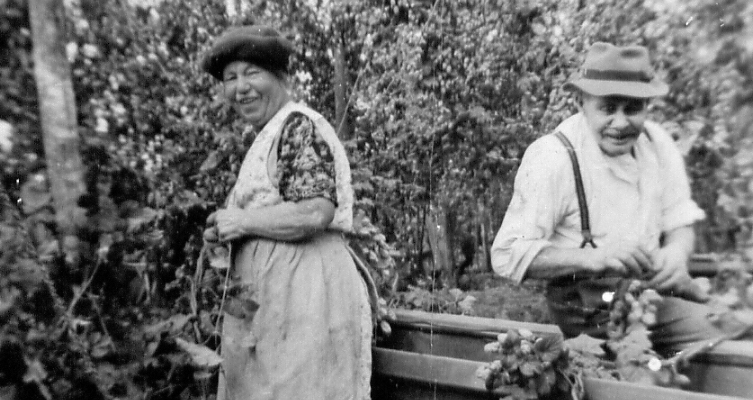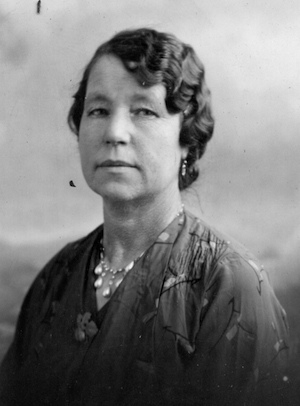 My grandmother, Jessie Lavinia Burrows, was born into a very poor family in the parish of St George's-in-the-East in 1889. She had two sisters and a brother who survived, and two brothers who didn't. Her father walked out on the family when she was about eight and from then on their lives became even more impoverished, if that was possible.
My grandmother, Jessie Lavinia Burrows, was born into a very poor family in the parish of St George's-in-the-East in 1889. She had two sisters and a brother who survived, and two brothers who didn't. Her father walked out on the family when she was about eight and from then on their lives became even more impoverished, if that was possible.
Surviving on the streets of Shadwell
They slept for a while in shop doorways and underneath the costers barrows at the market, they went down to the shore of the Thames and scavenged food and fuel that had been thrown away - it wasn't a 'lark' for them in the mud. They ended up in the workhouse, she and her little sister scrubbing the stone corridors with cold water in the middle of winter. Her mother was at the Shadwell workhouse, they were sent to Surrey.

Hardship in service and marriage
Jessie was trained for domestic service and was frequently cold and starving hungry - she couldn't look at beetroot because she ate an entire stone jar of it when she was hungry and it was the only thing she could get into in the pantry. Aged 19 in 1909 she married a Fred Venning. Family lore says he was violent. In 1911 she went on her own to New Zealand with a baby that was less than a year old, sponsored by the Duke of Norfolk's Catholic resettlement scheme, which I have been able to find no information for.
Work, love, and loss in New Zealand
This baby girl, Isabella Mary, died of pneumonia aged 16 months, in New Zealand. My grandmother had spent two years living in a tent and working as a cook at a sawmill, where there was little medical care available. She had met my grandfather by now, who was also British, and the baby's death is registered in Taumaranui under the surname 'Good', though her name is recorded as Venning.
They were given land in the north island and my grandmother farmed it while my grandfather travelled the country bridge building. My grandmother's mother and siblings joined her in New Zealand in a short time. They lost a four year old daughter to peritonitis caused by appendicitis as they lived 30 miles from the nearest other settlement and though they put her on a horse and cart to get her medical care it took too long and she was buried in Hamilton, New Zealand.
Returning to London, and the war
In 1932, my grandmother brought her children home, though the oldest child and only boy stayed in New Zealand. She, and my mother, lived through the Blitz in Brixton, bombs falling all round them. She managed to buy a house and set up a theatrical boarding house in Brixton, counting Johnny Weissmuller and Benny Hill among her guests.
Jessie's own brother died at 18 in the Dardanelles when his ship went down, he got out but went back to save the ship's cat and they drowned together. This story of William Burrows, Chief Stoker on the HMS Irresistible trying to save the ship's cat is repeated by more than one source.
Always a Cockney
My grandfather died in a flu epidemic in the 1960s and my grandmother left London - she never stopped grieving for him. Jessie died aged 83, always proud of being a Cockney. Everything I know about our family comes from her, the bravest, kindest woman I know.
A huge thank you to Ann Croucher for contributing this story and these great photographs to the East End Women's Museum.

